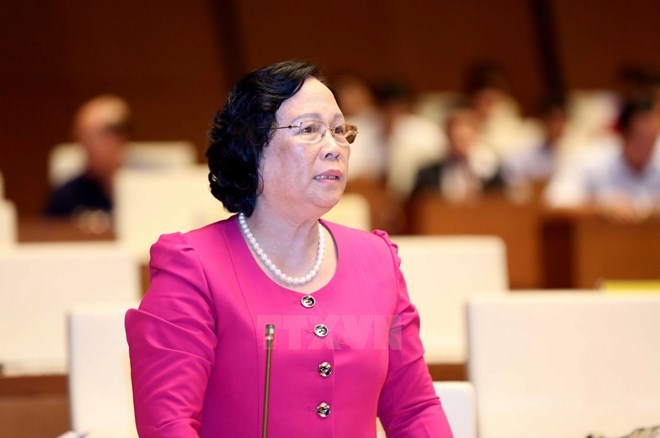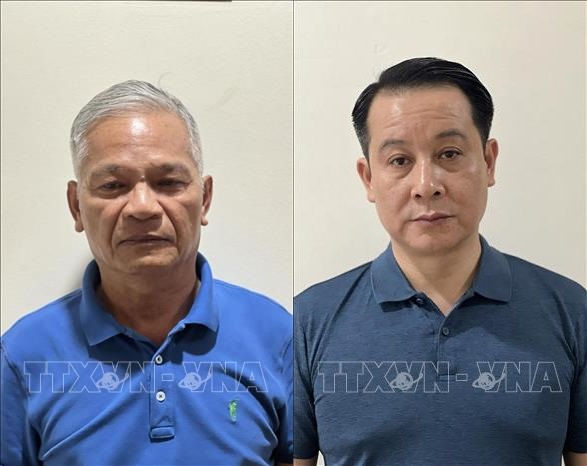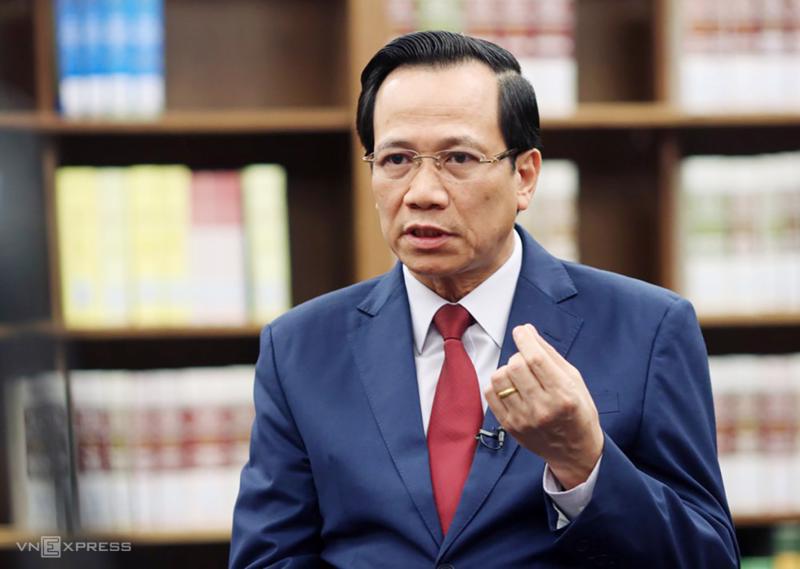Vietnam's Labor, War Invalids and Social Affairs (MOLISA) Minister Dao Ngoc Dung, a member of the powerful Communist Party Central Committee, has been reprimanded over a slew of corruption violations and regulatory breaches at his ministry that spanned many years and administrations.
Dung was among several high-ranking incumbent and former party officials censured on April 19th after the Politburo and Secretariat enforced disciplinary actions against multiple state bodies and individuals following a review by the party's Central Inspection Committee.
Systemic Rot at MOLISA
The MOLISA leaders was accused of systematic violations over the 2011-2016 and 2016-2021 terms under the successive watch of Mr. Dung, Ms. Pham Thi Hai Chuyen and Mr. Huynh Van Ti. All three were disciplined.

The party committees overseeing the ministry in those two terms were found to have flouted the principle of "democratic centralism" - the party's cardinal principle - as well as regulations, state laws and working procedures.
They were accused of "lax leadership" that enabled corruption in the procurement of vocational training programs and materials from private firms. The ministerial-level officials allegedly rigged bids to grant lucrative contracts improperly to Advanced International Joint Stock Company (AIC), causing major financial losses to state coffers.
The violations took place "systematically" over many years, posing a "huge risk of loss and waste" of public funds, according to the party's statement. It said the misconduct triggered public outrage and severely damaged the party's reputation as well as MOLISA's.
Disciplinary Actions
The entire MOLISA leadership from the two separate 2011-2016 and 2016-2021 terms were disciplined.
The 2011-2016 party committee was reprimanded, while the 2016-2021 committee received an official warning - indicating the severity of the violations increased in the latter period under Dung's watch as minister since 2016.
Besides Dung, the party also issued warnings to Chuyen, former MOLISA Minister and Ti, who served as MOLISA's Vice Minister. Both were members of the powerful Central Party Committee.
High-Profile Expulsions
Among the highest-profile casualties was Le Viet Chu, formerly a Central Committee member and the party chief of the central Quang Ngai province until 2021. The Central Inspection Committee reported Mr. Chu's case to Central Party Committe to expel him from the party altogether over the graft accusations.

Four other former or current provincial leaders in Vinh Phuc, Dak Lak, Dak Nong and Binh Phuoc provinces were booted out.
Pham Hoang Anh, the deputy party chief of Vinh Phuc, was expelled. So were Doan Huu Long, the ex-party head and former director of Health Department in Dak Lak; Dang Gia Dung, the former party chief and ex-director of Construction Department in Dak Nong; and Ma Ly Phuoc, a standing deputy head of Binh Phuoc province's Mass Mobilization wing.
The provincial officials were accused of ethical lapses, ideological failings, supervisory negligence in allowing graft to fester, and sweeping violations of party regulations and state laws.
The party said their misconduct caused "very serious consequences" and public uproar, badly tarnishing the reputation of party organizations and local administrations.
Credibility On The Line
As public outrage mounts over pervasive graft that has undermined the Communist Party's moral authority, the crackdown signifies the ruling party's determination to regain credibility through an anti-corruption drive. No official is being spared, regardless of connections or elite status.
The purge has spanned the highest party ranks, key ministries, and several provincial administrations nationwide. Dismissals and reprimands of incumbent ministerial officials point to how deeply corruption has permeated the system.
The party leadership stressed disciplinary actions against implicated officials must occur in "sync" with administrative measures by state authorities. This aims to re-establish accountability and deter future misconduct.
The crackdown confronts simmering public resentment over self-enrichment and power abuse by officials amid economic growth. While the "doi moi" reforms from 1986 dramatically raised living standards, they also enabled endemic graft and nepotism among some beneficiaries linked to the elite.









 Google translate
Google translate